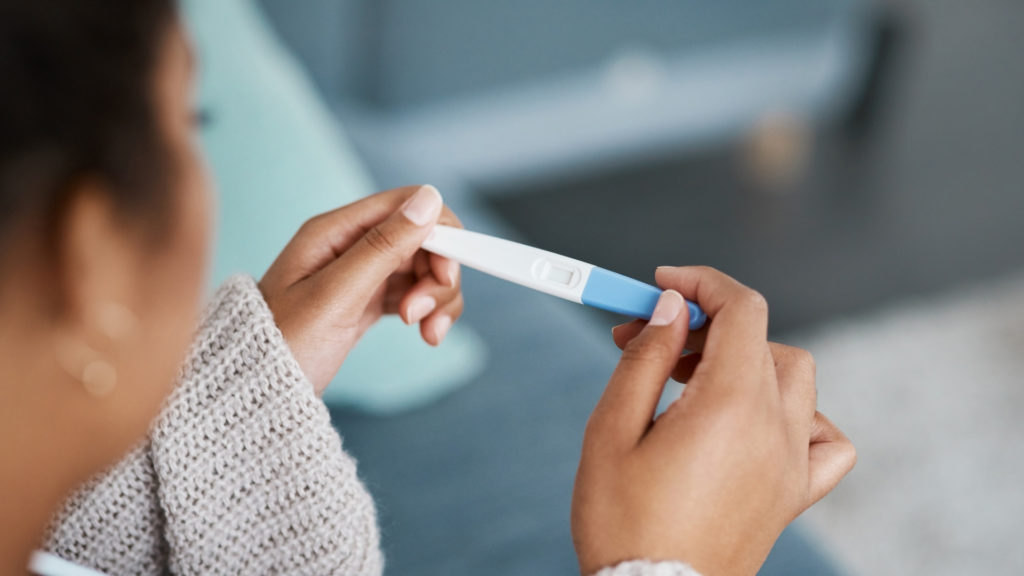Whether your pregnancy is a surprise or meticulously planned, navigating your symptoms in the earliest weeks of pregnancy can be confusing. Are you getting your period? Is spotting normal? Should you take a pregnancy test?
We’ve outlined everything you need to know about early pregnancy symptoms below. That way, if you are pregnant, you can receive prenatal care as early as possible.
What Are the Early Signs of Pregnancy?
There are several early signs of pregnancy that can indicate it’s time to take a pregnancy test. However, keep in mind that some women experience none of these symptoms while others experience all of them. To make things more confusing, many early pregnancy symptoms can feel similar to premenstrual syndrome (PMS). So, the only way to be sure is to take a pregnancy test.
Early Pregnancy Symptoms Can Include:
- Missed Period – A missed period is the clearest early sign of pregnancy. However, you can miss your period from stress, excessive exercise, dieting, hormone imbalances, and other factors. You should take a pregnancy test if your period is late, just to be sure.
- Tender, Swollen Breasts – Similar to PMS symptoms, your breasts can become tender and swollen in the early weeks of pregnancy as your body adjusts to increased hormones.
- Nausea and Food Aversions – Morning sickness can happen any time of day or night, and may or may not be accompanied by vomiting. You may experience nausea or aversion to foods you normally like. This is fairly normal throughout pregnancy, especially during your first trimester. If you experience nausea, try to stay hydrated and contact your doctor if you cannot keep down food and fluids.
- Frequent Urination – When you become pregnant, the amount of blood in your body increases, causing your kidneys to process extra fluid. This means you might be making more trips to the bathroom.
- Fatigue – Progesterone is a hormone that increases during early pregnancy, which can make you feel much more tired than normal.
- Mood Swings – Early pregnancy brings dramatic hormone changes, which can throw your mood out of whack. You may feel emotional, weepy, or experience drastic mood changes.
- Bloating – Bloating in early pregnancy can feel similar to bloating from PMS, so you may not notice it. However, early pregnancy bloating happens as a result of hormone changes.
- Spotting – Implantation bleeding can happen when the fertilized egg attaches to the lining of the uterus. This occurs 10 to 14 days after conception, typically around the time you would normally have your period. Implantation bleeding is much lighter and shorter in duration than a normal period. Not all women experience implantation bleeding.
- Cramping – Some women experience mild cramping during early pregnancy, which can easily be mistaken for PMS. If you experience cramping, but don’t get your period, you may be experiencing early signs of pregnancy.
- Constipation – Hormones can impact our digestive system, which is why many women experience diarrhea during their menstrual cycle. Early pregnancy is often accompanied by constipation due to sudden changes in hormones.
- Nasal congestion – Changes in hormones and blood production can cause the mucous membranes in your nose to dry out and swell, which may lead to nosebleeds, congestion, or a runny nose.
When to Take a Pregnancy Test
A pregnancy test measures human chorionic gonadotropin (hCG) which starts building in the body at the moment of conception and multiplies rapidly in early pregnancy. Typically, hCG levels will register on a pregnancy test within three to four weeks from the first day of your last period. This typically falls around the time you would normally get your period.
If you have been trying to conceive, you can take some pregnancy tests prior to missing your period. The pregnancy test will say on the box when the right time to take it is. Avoid taking the test earlier than instructed, as this can result in a false negative test. If your period is several days late, take an at-home pregnancy test, even if you aren’t experiencing any signs of early pregnancy. Not all women experience very early symptoms, and it’s important to receive prenatal care as early as possible.
Prenatal Care at Walnut Hill OBGYN
As soon as you find out you are pregnant, contact Walnut Hill to schedule your prenatal care. We offer all antenatal care including ultrasounds available in all trimesters. We also offer non-invasive pregnancy testing for genetic errors, and the best quality care for high-risk pregnancies or complications, should they arise. Call us today at (214) 363-7801 to schedule an appointment.

